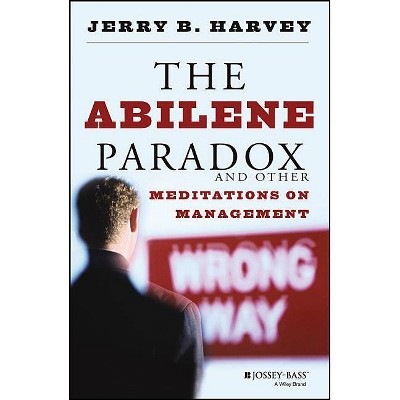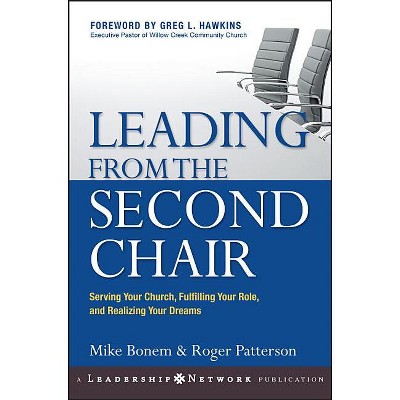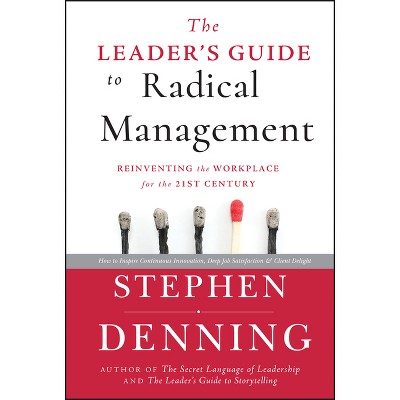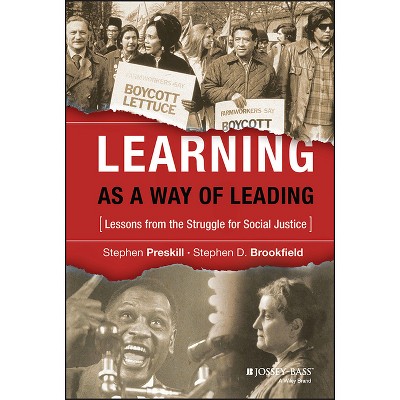Sponsored

The Paradox of Excellence - by David Mosby & Michael Weissman (Paperback)
In Stock
Sponsored
About this item
Highlights
- Are you striving for excellence yet find your efforts increasingly taken for granted and undervalued?
- About the Author: David Mosby is CEO of InterWorks Software, Inc., a software development firm that creates specialized customer retention and value reinforcement solutions and has built solutions for many companies, including DHL, Kaiser Permanente, and Link Logistics/Starbucks.
- 224 Pages
- Business + Money Management, Leadership
Description
About the Book
All too often, customers take performance--particularly excellent performance--for granted, creating expectations that are difficult to live up to for businesses. The authors provide an entertaining and practical model for building and maintaining high customer loyalty and brand value.Book Synopsis
Are you striving for excellence yet find your efforts increasingly taken for granted and undervalued? You're not alone. Many companies discover their improved performance doesn't translate into higher perceived value. In fact, it simply shifts the customer's expectations upward, causing the customer to take the new, improved performance for granted. High-performance companies unwittingly create unrealistic customer expectations that become impossible to meet. In this important book, the authors use a realistic story that illustrates the paradox of excellence3/4the better you perform, the more invisible you become to everything but bad news3/4shows the symptoms and causes, and provides clear guidance for overcoming this perplexing dilemma. The Paradox of Excellence introduces an entertaining story with characters that are easy to relate to, ideas that can be readily implemented, and a practical framework for achieving long-term success.
From the Back Cover
Praise for The Paradox of Excellence"This book reveals a powerful new formula for every business to become distinct and not extinct!"
--Ram Charan, coauthor, Confronting Reality and Execution, and author, Boards That Deliver
"The Paradox of Excellence is a must-read for any company executive. In today's competitive environment, it is all too easy to become 'invisible' to our customers, which leads to undesired consequences. This book helps put into perspective issues facing many businesses today."
--Garry Betty, CEO, Earthlink
"The Paradox of Excellence is a quick read and an excellent investment of your time. It provides a meaningful guide to improving communications and interactions with your customers."
--Jerry McElhatton, president, Global Technology & Operations, MasterCard International
"The message Mosby and Weissman are delivering is very important to all companies regardless of size or success. In my thirty-four years in business and eight as a college president, I have often seen and experienced the paradox of excellence phenomenon. This is a must-read for all in today's business and service environment."
--Bill Galvin, retired vice chairman, Xerox Corporation, and retired president, Babson College
"A fresh idea made very accessible--definitely worth reading!"
--Ron Okamoto, vice president, Worldwide Developer Relations, Apple Computer
"The Paradox of Excellence teaches a fundamental management lesson nestled in an involving, suspenseful story--operations excellence leading to high expectations coupled with inadequate management of your brand can be a recipe for disaster."
--David Aaker, vice chairman, Prophet, and author, Brand Portfolio Strategy
"I was so impressed with this book. I'm going to order an advanced copy for myself and members of my management team."
--Joan Waltman, president, Wireless Business Solutions, Qualcomm, Inc.
About the Author
David Mosby is CEO of InterWorks Software, Inc., a software development firm that creates specialized customer retention and value reinforcement solutions and has built solutions for many companies, including DHL, Kaiser Permanente, and Link Logistics/Starbucks.Michael Weissman, a leading expert in business growth strategies, is founder and president of Fresh Perspectives, a San Francisco Bay Area consulting firm. Michael has helped companies of all sizes, including Adobe, Apple Computer, Fidelity Investments, Hewlett Packard, and Intel, find new, practical ways to maximize their sales, profits, and value.
Shipping details
Return details
Trending Non-Fiction











